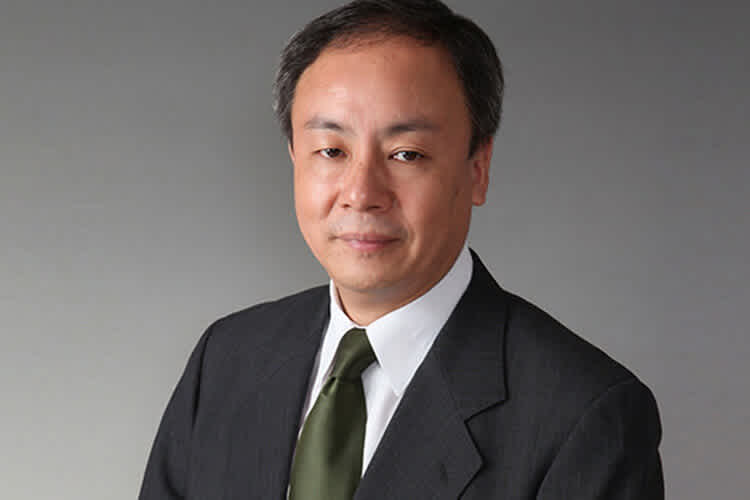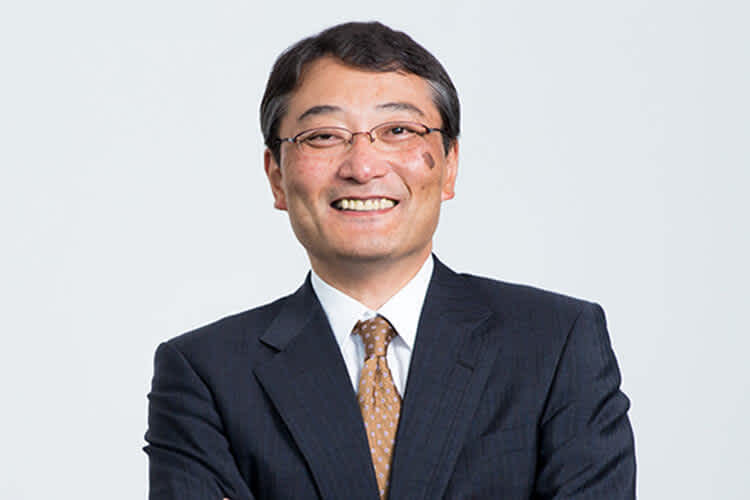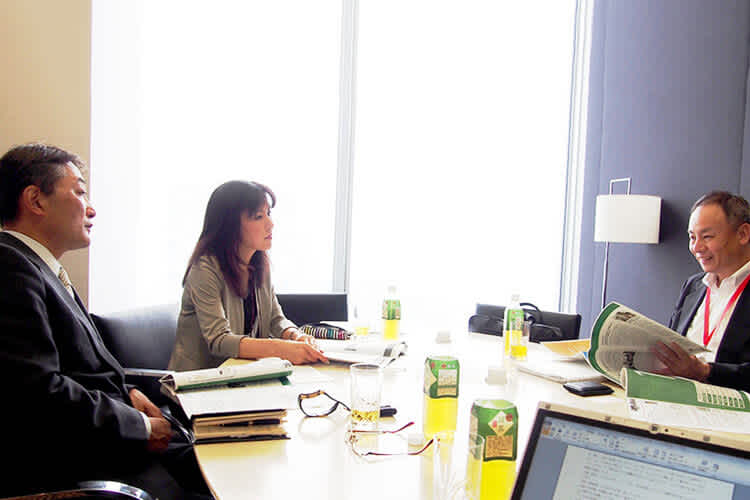Counselor, Japan Research Institute, Ltd.
Mr. Eiichiro Adachi
From my position as a provider of corporate information dealing with social responsibility to financial institutions, I hereby present a third-party statement on activities by the Recruit Group and information disclosure in that regard, as evidenced in the Recruit Holdings CSR website as of June 2015.

The message of sustainability at Recruit is plain and clear—that it will contribute to society through its business, guided by the Three Guiding Principles and Five Core Themes—defining priority areas to focus on. The numerous actual cases presented throughout the sustainability website illustrate that the Group is putting this corporate attitude to practice in each of its business activities. I would also like to note that the wealth of messages from the presidents and employees of individual companies make for real and readable content.
Meanwhile, having been newly listed on the Tokyo Stock Exchange in October 2014, Recruit faces growing expectations as a publicly traded institution. I have a number of proposals to offer in that regard.
First, I would suggest classifying information on Recruit's social responsibility into policies, practices, and performances and disclosing accordingly. Initiatives can be expected to grow in autonomy as this type of management takes root both in situations in which the company strives to amplify the positive effects of its activities and decisions on society and the environment, and in those in which it tries to mitigate the negative effects.
My second proposal is to further sharpen the focus on social issues. For instance, taking such angles as "addressing the aging population," "women's advancement in society," and "revitalizing small and medium-sized enterprises and local communities" could make for more persuasive messages. These messages could be even more effective with their focus narrowed further to "shortages of housing in which elderly people can live safely and comfortably," "imbalance of opportunities for women," "issues in the productivity of SMEs," and "information dissemination capabilities of local communities," respectively. The article on the expansion of educational disparities due to economic and geographic factors impressed me; I felt that the perspective of restoring inclusiveness to society—not allowing anyone to fall by the wayside—will be effective as Recruit seeks to contribute to society through its business.
Third, I recommend that Recruit balance its disclosure of information regarding a responsible business foundation. Recruit's financial statement gives a detailed discussion of business risks relating to the Recruit brand, information systems, handling of personal and confidential information, personnel recruitment and labor, and laws and regulations. I believe these points are important to the company's business activities, and a stronger emphasis should be placed on them in information disclosure on sustainability.
Finally, I have concluded that the prevention of conflicts of interest between users and clients should be at the heart of CSR as the Recruit Group engages in its business activities. The advancement of information and communications technology is widening the divide, and new business models incorporating users' input are coming into being. It is noteworthy that Recruit openly publishes the feedback received from students on the Rikunabi platform and the results of its survey on attitudes toward job hunting. I hope that it will make further efforts to listen to the voices of society, as well as develop provisions for preventing conflicts of interest and for helping users who find themselves disadvantaged in some way. All of the initiatives discussed under the heading "Information Quality and Reliability" were intriguing. I hope that Recruit will continue to be an industry leader next year and beyond by continuing to make as many decisions as possible in the form of "we will not xx" and disclosing them.
"Creating a prosperous society in which all individuals can live life to the fullest" is certainly not an easy task. The public looks forward to learning the Recruit Group's responses to the questions of what it means for each individual to live in this way and what defines a prosperous society. I hope that the Group will continue to boldly take on challenges.
The opinions stated above do not represent my judgment that this sustainability report has made accurate measurements and calculations in accordance with generally accepted standards of preparing environmental and other reports, or that it contains all material facts without omission.
Response to the Third-Party Statement
We would like to sincerely thank Mr. Adachi for his valuable input on sustainability at the Recruit Group. As Mr. Adachi noted, we have published this information with the aims of further enhancing transparency in the light of our public listing in October 2014 and conveying our message of "contributing to society through our business," which defines the core of our CSR, in a comprehensible manner. We particularly appreciate that Mr. Adachi evaluated the content-rich section introducing our actual efforts to contribute to society through our business activities.

Suguru Tomizuka Corporate Executive Officer Responsible for Corporate Communication and Risk Management Recruit Holdings Co., Ltd.
With regard to Mr. Adachi's suggestions to disclose information based on the standpoints of policies, practices, and performances and to establish management practices along those lines, we have renewed our commitment to engage in corporate management with a stronger awareness of these perspectives going forward. Furthermore, we believe that the concept of social inclusion, ensuring that no one is left behind in society due to lack of opportunity, will be highly important for us as we strive to further contribute to society through our business. We will also work toward more balanced disclosure of information, as recommended.
To offer quality to both the users of our services and the clients looking to transmit information, we will provide high-quality information services from a user-centric perspective, while also contemplating the ideals regarding information services, such as by creating fair market rules. We appreciate your continued support.
